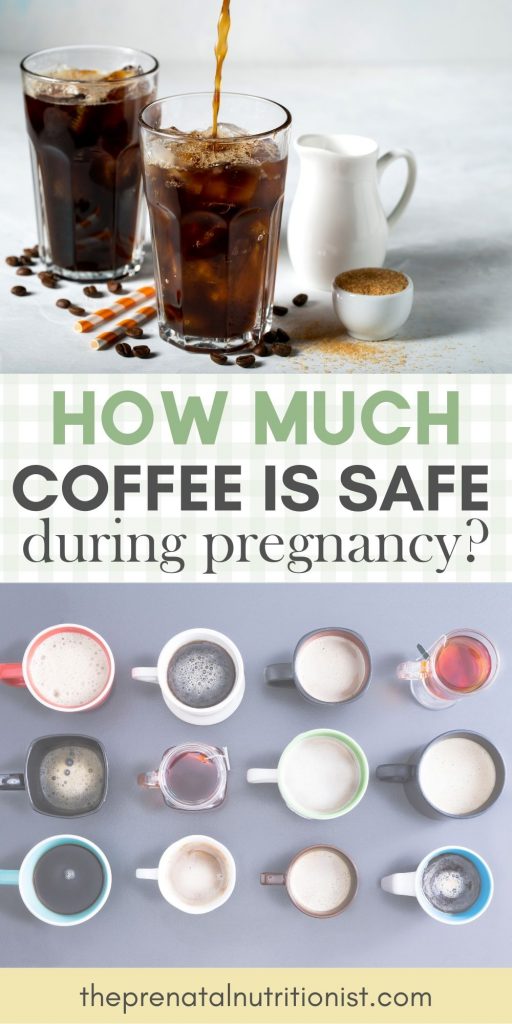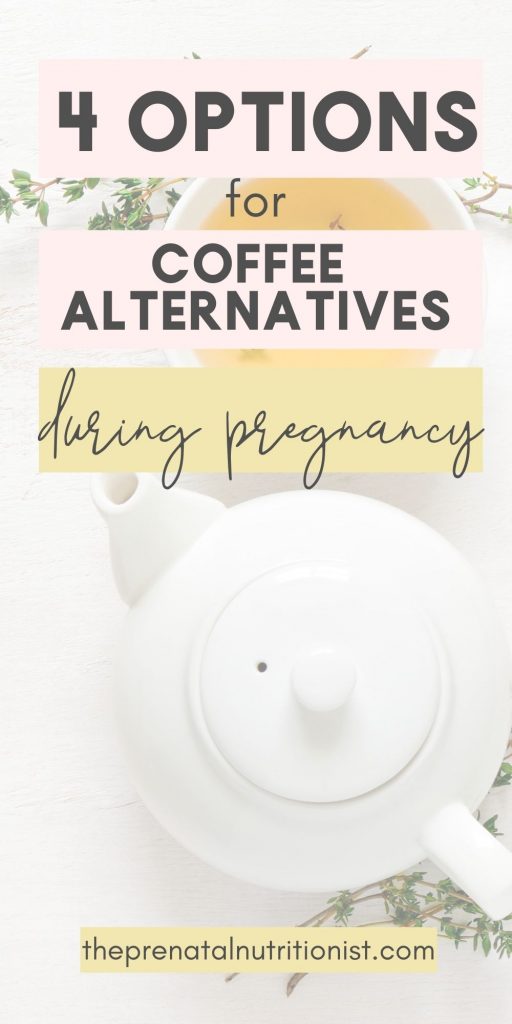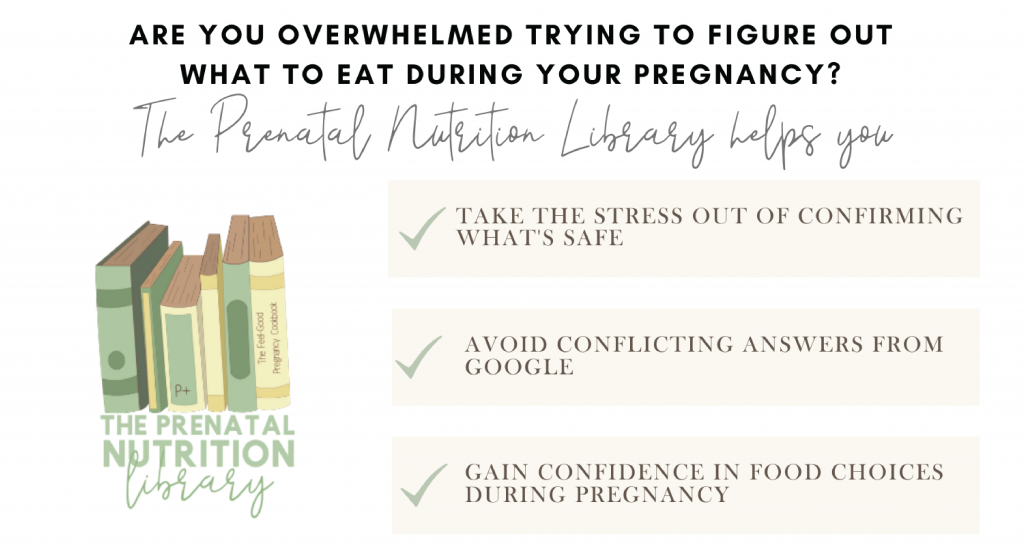
Understandably, giving up coffee when pregnant can be a very saddening thought, we get it. No matter the reason you drink coffee – to perk yourself up, to increase your productivity, or to boost your mood – you might be wondering if drinking a cup of coffee is still safe now that you’re pregnant.
Learning what not to drink while pregnant is important to ensure the health of your baby. The big issue with too much coffee intake is, of course, the caffeine. It’s important that pregnant women monitor their daily caffeine intake, mainly if they are a coffee drinker.
So, the short answer is yes, you can have your cup of coffee every day! But, before you grab your cup of joe and run, let’s take a deeper dive into just how safe that cup of coffee is and the effects it might have.

Is A Cup Of Coffee Safe During Pregnancy?
The short answer is yes, but caffeine should be limited. The American College of Obstetricians and Gynecologists (ACOG) current guidelines state that consuming less than 200 milligrams of caffeine per day greatly reduces the risk of miscarriage or preterm birth. In general, 1 cup of coffee is around 100 mg of caffeine, but this varies widely!
If you’re not a die-hard coffee lover and you’re willing to give it up for a while – great! Obviously, no coffee at all would greatly reduce your caffeine intake throughout the day. But for those of you that need a pick me up in the morning, it turns out that you can have one (8 – 12 oz.) cup of coffee per day. This is equivalent to about 100- 200 milligrams of caffeine. We should mention here though that some fancy coffees are brewed differently. And thus, have higher caffeine levels, as do drinks like cold brews.
High amounts of caffeine do increase the risk of adverse pregnancy outcomes such as miscarriage, low birth weight, small for gestational age, and stillbirth, however, we still can’t determine causation, i.e. caffeine intake causes low birth weight, stillbirth, miscarriage, etc.
So, if you are going to have that cup of java in the morning, here are some factors you should keep in mind throughout the day:
Most importantly, as mentioned above, there is a chance that too much caffeine intake can be detrimental to your baby’s health. Studies show because caffeine can cross into the placenta, that caffeine consumption in excess of 200 mg per day can lead to decreased birth weight and an increased chance of miscarriage or preterm birth. The half-life of caffeine increases in the 2nd and 3rd trimester of pregnancy meaning it takes longer to clear from your “system”.
When you’re pregnant, foods and drinks can affect your body differently than before. Your body is going through a lot of changes. What used to be a warm cup of bliss in the morning might be the reason you are racing to the restroom or battling heartburn all day. Coffee can also cause trouble sleeping and even insomnia which could lead to lower energy levels the following day.
Throughout your day, you may consume other foods and drinks that have caffeine. Because of this, it will be important to regulate your caffeine intake from other foods and drinks, especially if you indulge in some morning coffee. Foods and drinks with caffeine to watch out for are chocolate, tea, granola bars, energy drinks, and soft drinks. Some of these can actually be an alternative to coffee to get that caffeine fix, which we’ll discuss more below!

Coffee Alternatives During Pregnancy
Maybe you’re not ready to kick the caffeine habit or maybe you just love the relaxation of a warm beverage. Either way, we’ve got you covered. Below, we highlight some alternatives that just might be able to satisfy your craving! We all know that decaf doesn’t always do the trick. Keep in mind that even if you are substituting lower caffeine beverages for your coffee, you should still monitor your caffeine consumption. And remember that you should always contact your doctor if you’re still unsure or have additional questions about the intake of caffeine during pregnancy.
Nut or Mushroom Coffees
Have you seen these on the market? Every time I go to the store, I feel like I see another “coffee alternative”. And while we have little to no research on these types of “coffee” especially during pregnancy, due to them being made from nuts and mushrooms, they are likely completely safe to consume while pregnant. Mushroom coffee typically still has caffeine though, so be sure you read the label and know what you are drinking! Head to The Prenatal Nutrition Library to learn more about this topic.
Decaf Coffee
Opting for a 1/2 caf or decaf coffee is one way to decrease the amount of caffeine you are consuming on a daily basis. Although if you are struggling with your iron levels, this still may not be the best alternative. The tannins in coffee and some teas can interfere with iron absorption. For this reason, it is still best to drink your coffee in between meals, instead of with your meals. Most decaf coffees still have small amounts of caffeine, just so you are aware!
Ginger or Peppermint Tea
Ready to give up caffeine, but still want to cuddle up with a nice, warm beverage? A caffeine-free tea may be just what you need. While some teas contain caffeine, some like ginger, peppermint, and chamomile teas are safe for pregnancy and caffeine-free. And you can spruce up your teas with other ingredients such as lemon and honey. Be sure to do your research on the many different types of tea to see which are caffeine-free. But then, feel free to mix it up. For a list of safe herbal teas, join us in The Prenatal Nutrition Library.
Black, Green, and White Teas
Black, green, and white teas are a great alternative to coffee because while they do contain caffeine, it is a lower amount than coffee. Swapping your cup of joe for a cup of tea will greatly reduce your caffeine intake, while still giving you that little boost to get through your day. Black, green, and white teas can also be soothing for relaxation and help to relieve stress.

Are you enjoying coffee while you’re pregnant?
So, will you stick to your one cup a day or will you switch to a lower or no caffeine alternative? Let us know below!
As you can see, many topics aren’t always black and white with pregnancy. With so many articles and opinions online, the answer can sometimes be cloudy. We hope you found this article helpful as you navigate the many do’s and don’ts of pregnancy, but remember, ultimately it is your decision. Also, check out our other blogs for more tips like the best drinks for early pregnancy and what to eat and drink after delivery! And, if you want to dive deeper into topics like caffeine, tea, fatigue, nausea, and more join The Prenatal Nutrition Library as your one-stop hub for all things prenatal nutrition.









